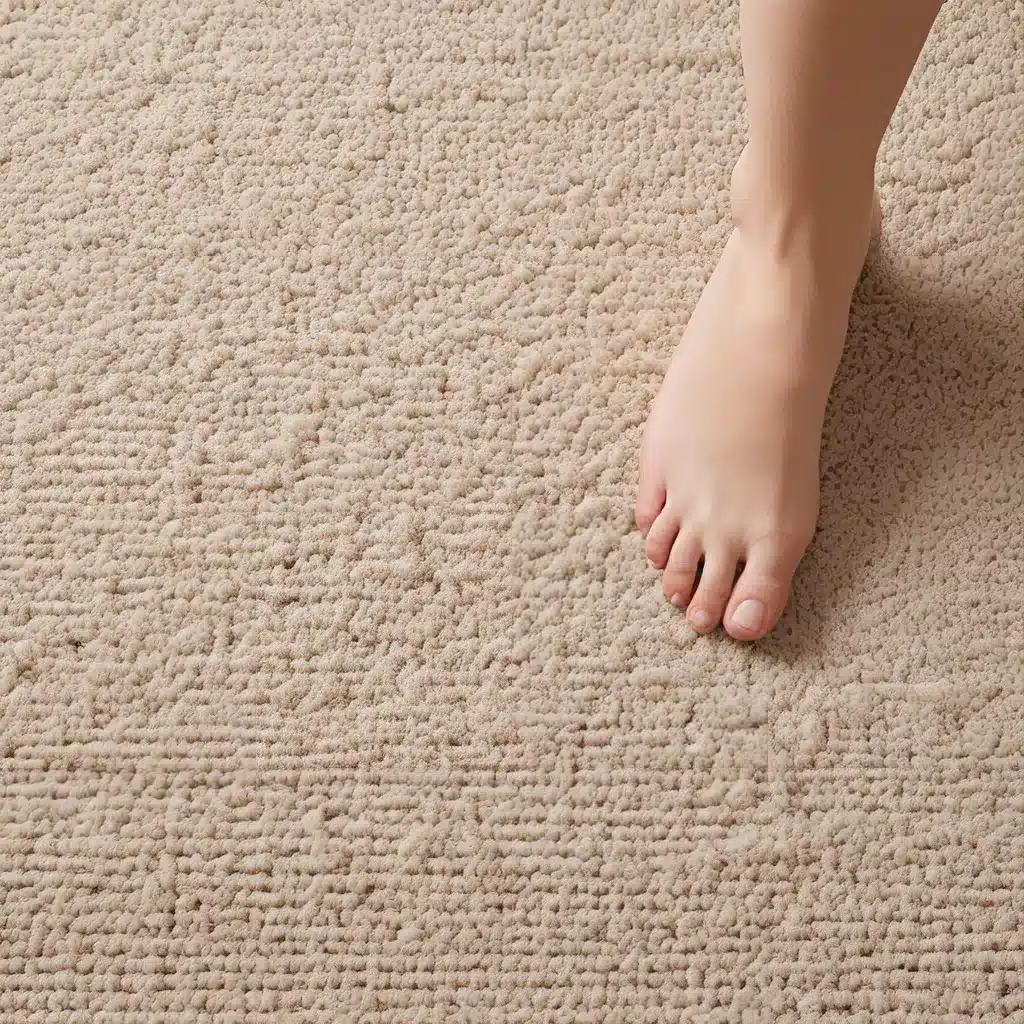
As I step into my living room, my eyes instantly gravitate towards the plush, carpeted flooring. It’s a familiar sight, one that’s been a constant in my home for as long as I can remember. But today, I find myself questioning the significance of this seemingly mundane detail – could the very carpet beneath my feet be influencing my mental health in ways I never imagined?
Recent research from the Harvard T.H. Chan School of Public Health has uncovered a surprising link between the quality of our indoor air and our overall well-being. Dr. Joseph Allen, an Associate Professor and Director of the Harvard Healthy Buildings Program, has been at the forefront of this groundbreaking discovery. Through his work, he’s demonstrated how the air we breathe can have a profound impact on our cognitive function and mental state.
As I delve deeper into this topic, I can’t help but wonder: How can something as simple as a clean carpet contribute to a healthier mind? The answer, it seems, lies in the intricate web of connections between our physical environment and our psychological well-being.
The Dirty Secret of Outdoor Pollution
We’ve long been aware of the detrimental effects of outdoor air pollution on our physical health, from heart and lung issues to respiratory problems. But the impact of indoor air quality on our mental health is a lesser-known, yet equally concerning, phenomenon.
“Most of the outdoor air pollution we breathe, we breathe indoors,” explains Dr. Allen. This is because harmful air pollutants, such as particulate matter (PM2.5) and nitrogen dioxide (NO2), can easily penetrate our homes, schools, and workplaces through open doors, windows, cracks, and crevices.
These tiny particles, smaller than 2.5 microns in diameter, can reach the deepest parts of our lungs, triggering inflammation and oxidative stress. But their insidious effects don’t stop there. Research has shown that these pollutants can also find their way to our brains through the olfactory nerve, directly entering brain tissue and causing enduring negative effects on our mental health.
The Surprising Link: Carpets and Mental Well-being
So, where do carpets fit into this equation? It turns out that the very flooring we walk on every day can play a significant role in determining the quality of our indoor air, and consequently, our cognitive function and emotional state.
Carpets, when properly maintained, can act as effective filters, trapping harmful airborne particles and preventing them from circulating throughout the indoor environment. However, neglected or dirty carpets can become a breeding ground for dust, allergens, and other pollutants, which can be easily stirred up and re-suspended into the air we breathe.
The implications of this connection are profound. Studies have shown that long-term exposure to air pollution can lead to decreased quality of life, increased risk of depression, and even suicidal ideation. Furthermore, children are particularly vulnerable, as their developing brains are especially susceptible to the negative effects of poor air quality, which can increase the risk of bipolar disorders, schizophrenia, and major depression.
Practical Steps to Improve Indoor Air Quality
The good news is that improving indoor air quality is an achievable goal for all of us, and it starts with the simple act of maintaining our carpets. By regularly cleaning and vacuuming our carpets, we can effectively reduce the accumulation of harmful particles and improve the overall air quality in our homes.
But the responsibility for clean, healthy air extends beyond just our carpets. The Lancet Commission Task Force on Safe Work, School, and Travels has outlined four key strategies that every building should pursue to create healthier indoor environments:
- Ventilation: Ensuring adequate ventilation to dilute and remove indoor pollutants.
- Filtration: Using high-efficiency air filters to capture airborne particles.
- Source Control: Identifying and eliminating or reducing the source of indoor pollutants.
- Air Cleaning: Employing air cleaning devices to further purify the indoor air.
These strategies, combined with regular carpet cleaning, can go a long way in safeguarding our mental well-being and cognitive function. After all, as Dr. Allen eloquently states, “A healthy building is a human right.”
The Changing Tide: Prioritizing Indoor Air Quality
The good news is that the importance of indoor air quality is gaining traction among policymakers, healthcare professionals, and the general public. The White House, the Center for Disease Control and Prevention (CDC), and the American Society of Heating, Refrigerating and Air-Conditioning Engineers (ASHRAE) have all recognized the issue and are working to establish new, health-based standards for indoor air quality.
This shift in perspective is crucial, as strategies for healthy living have traditionally focused on diet, exercise, and lifestyle habits, often overlooking the profound impact of our indoor environments on our overall well-being. By collaborating with creators and harnessing the power of social media, researchers like Dr. Allen are working to spread awareness and empower individuals to take control of the air they breathe.
As I reflect on this newfound understanding, I can’t help but feel a sense of empowerment. Maintaining a clean carpet is no longer just about aesthetic appeal – it’s about safeguarding my mental health and cognitive function. And with the practical steps outlined by experts, I’m confident that I can contribute to a healthier, more mindful indoor environment – one that supports my well-being and that of my loved ones.
So, the next time I glance down at my plush, carpeted floor, I’ll be reminded of the vital connection between clean air and healthy minds. And I’ll be sure to schedule regular carpet cleanings with Carpet Cleaning Maconga – because a healthy home is the foundation for a healthy mind.

